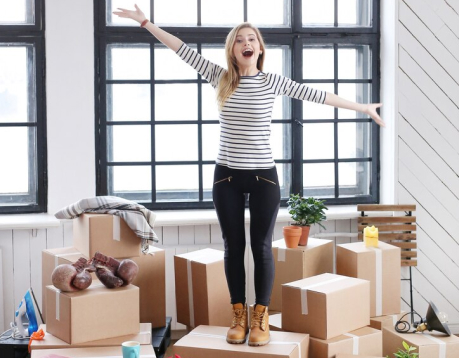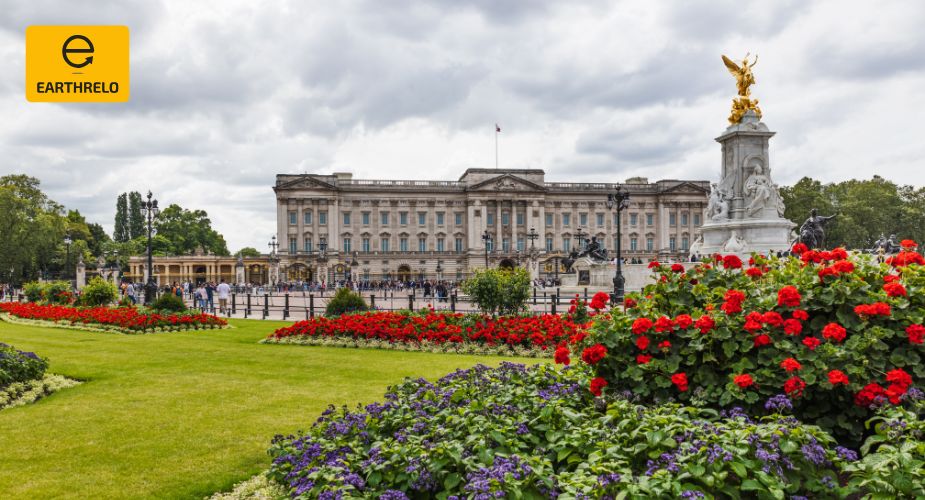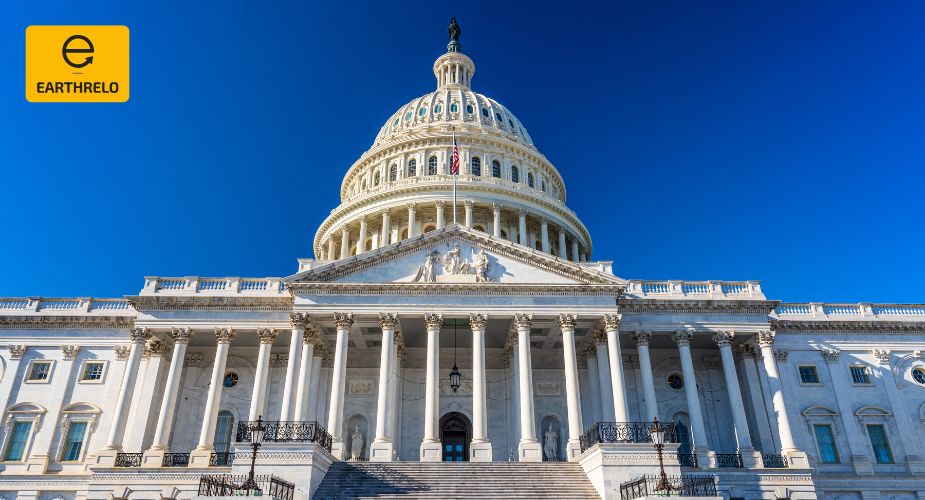- August 11, 2025
Starting with the right packing checklist for moving can make all the difference when preparing for life in France. Between organizing your belongings and adjusting to a new culture, the transition can feel overwhelming—but it doesn’t have to be. Whether you’re relocating for work, school, or personal adventure, a structured checklist ensures nothing gets left behind and that your move stays on track from day one.
France offers a charming blend of tradition, modernity, and lifestyle, but getting settled there starts with smart preparation. One of the most overlooked yet critical steps is organizing what to bring and how to pack. This is especially important for international relocations, where forgotten essentials can be difficult—or expensive—to replace overseas. That’s why Earthrelo has put together this guide to walk you through each stage of the relocation journey.
From everyday essentials to personal comforts, this comprehensive packing checklist for moving offers a clear relocation packing checklist that ensures you arrive ready, stress-free, and fully prepared for your new chapter in France.
The Only Packing Checklist for Moving You’ll Ever Need
Every successful international relocation starts with a carefully planned packing checklist for moving. With so many moving parts—documents, electronics, clothes, medications—it’s easy to overlook small but vital items. When relocating to France, the logistics can get even trickier due to the time difference, customs regulations, and lifestyle shifts. That’s why this step-by-step list is designed to bring structure to the chaos.
Using a relocation packing checklist not only helps you stay organized, but also reduces the last-minute rush. By segmenting items into categories and prioritizing what’s most important, you’re able to pack with purpose instead of panic. The more intentional you are at the beginning, the smoother things will be on the other side.
Earthrelo understands the complexity of international relocations and provides expert guidance every step of the way. From packing support to shipping logistics, the goal is to help you focus on your future life in France, not on what you forgot to include in your packing checklist for moving.
Essential vs. Non-Essential Items
When creating your packing checklist for moving, one major tip is to separate must-haves from nice-to-haves. Essentials include documents, medications, chargers, and daily clothing. Non-essentials might be decor or seasonal items you won’t need right away. This method keeps your luggage light and your priorities straight.
Organizing by Room or Function
Another helpful way to approach your relocation packing checklist is by room or by category. Start with personal items like clothing and toiletries, then move to documents, electronics, and comfort items. You’ll pack faster, and it’ll be easier to track what’s already been packed versus what’s missing.
Essential Documents You Can’t Afford to Forget
No matter how experienced a traveler you are, forgetting key paperwork can quickly turn a smooth relocation into a stressful ordeal. That’s why your packing checklist for moving should always begin with the most critical documents. These will be the foundation of your transition, and losing them can delay everything from housing to healthcare.
Earthrelo recommends gathering and organizing these documents early in the process to avoid last-minute scrambles. Keep digital backups as well, just in case of emergencies.
Identification and Travel Documents
The most basic but essential part of your packing checklist for moving is your identification. This includes your passport, any international travel permits, and at least two copies of each. For families, remember that every member—including children—needs their own set of documentation.
Keep these documents in a specific folder in your carry-on bag. They should never be checked in with luggage, as lost baggage can cause unnecessary delays or complications upon arrival.
Financial and Legal Records
Banking records, tax documents, and power of attorney forms are also part of your must-pack legal essentials. These will come in handy whether you’re opening a new bank account in France or dealing with international money transfers. Don’t forget to bring at least one credit or debit card with international access, along with a written list of important account numbers.
Including these in your packing checklist for moving adds an extra layer of preparation that ensures you’re covered in case of unexpected financial or legal issues.
Medical History and Insurance Papers
Healthcare may vary widely from what you’re used to, so having your full medical history on hand can ease the transition. Adding this to your packing checklist for moving means you’re prepared to register with a French healthcare provider or pharmacy with no delay.
Also include health insurance cards or documentation of your international coverage. Without them, even minor medical concerns can turn into major frustrations.
Educational and Employment Credentials
If you’re relocating for work or study, your packing checklist for moving should include employment contracts, offer letters, and transcripts. These are often required when enrolling in institutions or applying for residence-related tasks. Make sure these documents are properly translated, if necessary, and kept in their own labeled section.
The clearer and more complete your document folder, the easier it’ll be to establish yourself upon arrival in France. A little planning here pays off in a big way later.
Clothing: What to Pack for France’s Weather and Lifestyle
When creating your packing checklist for moving to France, clothing deserves careful attention. France’s climate varies by region and season, and French style leans toward practicality with a touch of sophistication. Your wardrobe should reflect this balance—functional enough for different weather conditions and refined enough for daily outings.
A well-prepared wardrobe ensures you’re not only comfortable but also culturally in sync with your surroundings. The trick is to bring enough to cover your bases without overpacking, especially when luggage space is limited.
Everyday Essentials for All Seasons
Start with versatile clothing that can be layered. Lightweight shirts, casual jeans, comfortable sweaters, and neutral-toned pants are staples in most French cities. Be sure to include these staples in your packing checklist for moving so you’re ready for changing weather conditions.
Light jackets or windbreakers also earn their place on your relocation packing checklist. They’re perfect for unpredictable weather and easy to carry during travel.
Adapting to France’s Winter and Summer
France experiences both cold winters and warm summers depending on the region. For winter months, include a quality coat, thermal innerwear, and a scarf or gloves in your packing checklist for moving. If you’re moving to a northern city, the weather can dip significantly, so packing these ahead is essential.
During summer, breathable fabrics like cotton and linen are ideal. Include a couple of short-sleeve tops, one or two summer dresses or shorts, and a hat for sun protection. These keep you comfortable without overburdening your suitcase.
Formal and Occasion-Specific Attire
Whether you’re attending a business meeting or an evening dinner, the French tend to dress with subtle elegance. Include a formal outfit or two—perhaps a blazer, dress shoes, or a sleek dress—so you’re prepared for special occasions.
Having these on your packing checklist for moving keeps you ready for both professional and social gatherings without scrambling to shop once you arrive.
Footwear for Daily Use and Travel
Comfortable, supportive footwear is a must, especially in cities where walking is common. Including everyday and seasonal shoes in your packing checklist for moving helps you avoid unnecessary shopping after arrival and ensures day-one comfort.
Shoes take up considerable space, so choose ones that serve multiple purposes. Earthrelo advises prioritizing comfort over quantity to keep your baggage manageable while still meeting your wardrobe needs.
Moving to France?
Contact Us TodayMust-Have Electronics and Appliances (That Work in France)
Electronics can be easy to forget, but they’re often the most frustrating to replace abroad. That’s why no packing checklist for moving is complete without a clear plan for devices and accessories. France operates on a 230V voltage with Type E plugs, which may differ from what you’re used to. Bringing compatible devices or the right converters is essential to avoid damage and ensure uninterrupted use.
Everyday Devices You’ll Rely On
Your laptop, smartphone, and tablet are key to staying connected during the relocation process. Add these electronics, along with chargers and backup batteries, to your packing checklist for moving to stay functional and reachable at all times.
These devices should always be part of your relocation packing checklist, as they support communication, work, and entertainment while in transit and during your early days in France.
Adapters, Converters, and Compatibility
One of the most useful moving packing tips is to pack at least two universal plug adapters. Since France uses a different outlet system, adapters are necessary for foreign electronics to work correctly. If your appliances don’t support dual voltage, a converter is a must.
Without these tools, even a simple task like charging your phone can become a hassle. Including them in your packing checklist for moving saves you from unnecessary stress.
Compact Appliances You Might Want
While large appliances are usually better bought locally, there are small items worth bringing. Include a compact hairdryer, steamer, or electric razor in your packing checklist for moving to make daily routines smoother while adjusting to your new environment.
Just make sure any appliance you pack is compatible with France’s electrical standards. Earthrelo recommends checking this early to avoid bringing items that won’t work or could be unsafe.
Toiletries and Personal Care: What’s Essential, What’s Optional
Another important section of your packing checklist for moving involves toiletries and personal care products. These items are often overlooked until you reach your destination, only to realize how specific your routine really is. While many toiletries are available in France, having familiar products during your first few weeks can provide comfort and consistency.
When preparing this section of your relocation packing checklist, it’s all about balance—enough to cover immediate needs, but not so much that it becomes excess baggage.
Daily Hygiene Must-Haves
Pack a small but complete hygiene kit that includes essentials such as toothbrush, toothpaste, shampoo, conditioner, deodorant, and soap. Adding these to your packing checklist for moving guarantees you’ll have what you need right away without needing to visit a store immediately.
These items are the core of your personal care routine and should be packed early to avoid last-minute rushes.
Skincare and Special-Use Products
If you have sensitive skin or rely on specific skincare products, include a few months’ supply in your luggage. This might include moisturizers, cleansers, or acne treatments that aren’t readily available or are more expensive in France.
This is one of the most practical moving packing tips because replacing specialty products abroad can take time. Adding them to your packing checklist for moving ensures continuity in your routine.
Grooming and Hygiene Tools
Razors, tweezers, nail clippers, and a compact mirror are personal tools that are easy to forget. Make sure these small grooming items are added to your packing checklist for moving, so you won’t be caught without your daily-use essentials during your first days abroad.
Earthrelo also suggests packing personal care items in leak-proof, compartmentalized bags. It keeps your luggage clean and makes it easier to find what you need when unpacking.
Medications and Health Essentials
A well-rounded packing checklist for moving must include medications and health-related items that may be difficult to obtain abroad. Even in countries with accessible healthcare systems, the availability of your specific prescriptions or preferred over-the-counter remedies isn’t guaranteed. Preparing for your health needs ahead of time gives you peace of mind and prevents potential disruptions after arrival.
When moving to France, bringing a clearly labeled health kit allows you to manage your care immediately without the added pressure of navigating a new pharmacy system during your first weeks.
Prescription Medications
Your packing checklist for moving should begin with any long-term prescription medications you use daily. Make sure to pack enough for several months, ideally with a note from your doctor explaining each medication’s purpose. This can be especially useful when passing through customs or transferring to a local provider in France.
Keep your medications in their original containers and include printed instructions. This small step can make a big difference if you’re ever asked to clarify the use of any medication during travel.
Over-the-Counter Essentials
You may want to include common non-prescription medications that you’re accustomed to. This might include pain relievers, allergy pills, cold remedies, or digestive aids. While similar items are available in France, familiarity and ease of use are reasons to bring your preferred brands.
By including them in your packing checklist for moving, you’re ensuring that minor health issues don’t become major inconveniences during your adjustment period.
First-Aid Supplies
A basic first-aid kit with adhesive bandages, antiseptic wipes, tweezers, and medical tape can come in handy in the early days. Don’t forget to add this kit to your packing checklist for moving so that minor injuries or health concerns can be handled right away without a pharmacy trip.
Earthrelo always encourages careful preparation of health essentials. These are easy to overlook but crucial for a stress-free start in a new country.
Home Comforts: Bringing a Slice of Home with You
It’s easy to focus your packing checklist for moving solely on logistics and necessities, but home comforts play a big role in emotional adjustment—especially in the first few months. Surrounding yourself with familiar items can help reduce homesickness and create a sense of normalcy in your new space.
When creating your relocation packing checklist, make space for items that carry personal meaning. These don’t need to be large or elaborate—just thoughtful and grounding.
Sentimental Keepsakes
Photos of loved ones, handwritten letters, or small personal tokens can instantly make a new apartment feel like home. To maintain emotional connection, consider adding these sentimental items to your packing checklist for moving.
When sorting through what to pack, include a small collection of keepsakes that reflect your identity and support emotional well-being in your new environment.
Books, Journals, and Stationery
Reading your favorite book or writing in a familiar journal can provide calm in the midst of change. Though heavy books should be kept to a minimum, one or two favorite titles can be comforting. A new notebook or planner also helps establish routines in unfamiliar surroundings.
Adding these to your packing checklist for moving gives you practical and emotional tools for navigating the transition.
Decor and Small Home Items
Bringing small decor items such as a pillow cover, compact blanket, or even a scented candle can instantly personalize your new space. Include a few of these in your packing checklist for moving to create a warm and familiar atmosphere right from the start.
Earthrelo has seen that clients who pack personal home items report faster adjustment times. These simple additions can make a new space feel inviting and familiar.
Kitchenware and Non-Perishable Food Items
As part of your packing checklist for moving, the kitchen is often overlooked—yet it’s one of the spaces where daily habits are built. While you don’t need to ship your entire kitchen, bringing a few well-chosen items can help you ease into cooking and mealtime routines without immediate stress.
A thoughtfully packed kitchen section in your relocation packing checklist means you can prepare meals you’re comfortable with while learning the local cuisine at your own pace.
Everyday Cooking Tools
There may be specific tools you’re used to—like a favorite spatula, measuring cups, or a French press—that are worth packing. Add these comfort-focused tools to your packing checklist for moving so you can cook with ease and maintain familiar routines.
Including one or two tools you regularly use helps you transition more smoothly into cooking in a new kitchen setup.
Reusable Containers and Utensils
Having a couple of reusable food containers and your own utensils is particularly useful in the early days. These everyday kitchen essentials should be part of your packing checklist for moving to help you settle in quickly and avoid unnecessary purchases.
This kind of forward thinking is one of the most useful moving packing tips because it saves both time and money during your first few weeks in France.
Spices and Packaged Snacks
Every country has its own culinary staples, and France is no different. Still, if you enjoy cooking with certain spices or sauces that are hard to find abroad, it makes sense to bring small, sealed packets. The same goes for snacks or tea that bring a taste of home.
Adding familiar flavors to your packing checklist for moving helps maintain dietary habits and adds joy to your mealtimes during the adjustment period.
Earthrelo understands the emotional connection people have with food and encourages clients to include a few kitchen-related comforts. These choices can bring a surprising amount of stability and satisfaction in the midst of change.
What to Pack in Your Carry-On for Moving Day
While most of your belongings will go into checked luggage or be shipped, your carry-on bag plays a critical role in any international relocation. The items you choose for this part of your packing checklist for moving can determine how smoothly your travel day unfolds—and how well-prepared you feel upon arrival.
Because you’ll be without access to your main luggage during the journey, your carry-on should be your personal survival kit. Think of it as a compact version of your larger relocation packing checklist.
Important Travel Documents and IDs
All key documents should be stored in your carry-on, not your checked luggage. This includes your passport, boarding pass, health insurance documents, and any contracts or housing papers you may need upon arrival. These critical papers are an absolute must for your packing checklist for moving.
These documents are the backbone of your move, and ensuring they are close at hand will give you peace of mind throughout your journey.
Electronics and Chargers
Include your phone, laptop, headphones, and all necessary chargers in your carry-on. If you’re using a portable charger, make sure it’s fully charged before your departure. These are not just travel accessories—they’re essential for staying connected and entertained throughout a long trip.
Adding electronics to your packing checklist for moving ensures you’re never left scrambling to power up in a new country where plug types and outlets may be unfamiliar.
Personal Comfort Items
Flights can be long and tiring, so it’s smart to include comfort items like a neck pillow, a light sweater, or an eye mask. These comfort items belong on your packing checklist for moving to help you arrive in France refreshed and ready for the transition ahead.
While these may not be the most obvious entries in a relocation packing checklist, they often end up being the most appreciated during travel itself.
Essential Toiletries and Clothing
Include a toothbrush, toothpaste, deodorant, and face wipes to freshen up during layovers. A change of clothes—especially undergarments—is also advisable in case of delays or misplaced luggage. Add these carry-on items to your packing checklist for moving so you’re prepared for any unexpected travel disruptions.
Earthrelo always advises clients to keep their most immediate necessities with them during transit. It’s one of the most overlooked yet valuable moving packing tips for international travelers.
Moving Packing Tips to Stay Organized and Stress-Free
Planning your relocation doesn’t end with deciding what to bring—it also involves how to pack efficiently. Without a system, even the most detailed packing checklist for moving can fall apart in execution. To avoid stress, time loss, or even damage to your items, it’s essential to approach packing as a process rather than a one-time task.
This is where smart techniques and preparation methods come into play. Use these suggestions to make your relocation packing checklist not just comprehensive—but also practical and easy to follow.
Start Early and Pack Strategically
Rushing leads to poor decisions and forgotten essentials. Begin packing well in advance, starting with non-essentials and seasonal items. Gradually work your way toward daily-use items in the final days leading up to departure. This staggered method prevents overwhelm and lets you adjust as new priorities emerge.
Including this step early in your packing checklist for moving gives you the flexibility to manage unexpected challenges or additions.
Label and Categorize Everything
Label each bag or box with its contents and the room it belongs to. Use permanent markers or color-coded tape to simplify unpacking later. Maintaining this system is one of the most effective strategies in your packing checklist for moving to ensure a smooth setup in your new home.
This organizational tactic makes your relocation packing checklist actionable and trackable. You’ll spend less time searching and more time settling into your new space.
Prioritize Weight Distribution and Fragile Items
When loading bags or containers, place heavier items at the bottom and lighter ones on top. Fragile items should be cushioned using soft clothing or bubble wrap and clearly marked. These packing techniques are essential components of your packing checklist for moving to protect your belongings throughout the journey.
These practices aren’t just about protecting your things—they’re about arriving in France with everything intact and ready to use.
Keep One Essentials Box for Immediate Unpacking
One of the most useful moving packing tips is to create an “essentials box.” This includes items you’ll need immediately upon arrival—such as bed sheets, toiletries, basic kitchen tools, and one change of clothes. Keep it easily accessible when unloading.
By making this part of your packing checklist for moving, you’ll save yourself from digging through boxes after a long travel day, making the transition into your new home smoother.
Earthrelo supports a stress-free relocation process by helping you pack with strategy, not just speed. With the right approach, your checklist becomes more than a list—it becomes a system that keeps you focused and in control.
Wrapping Up
Using a clear packing checklist for moving to France doesn’t just help you stay organized—it helps you feel in control during a major life change. From essential documents and health supplies to clothing, toiletries, and home comforts, each item you pack plays a role in easing your transition. A successful international relocation is as much about mindset as it is about logistics, and preparation is your strongest ally.
By customizing your relocation packing checklist, you give yourself the advantage of readiness. You reduce surprises, eliminate stress, and arrive with confidence. Small steps like labeling boxes, preparing a carry-on kit, and including personal items can transform your moving day experience.
Earthrelo’s team of international relocation experts understands how daunting a move abroad can feel. That’s why we guide you every step of the way—whether you’re packing your life into suitcases or adjusting to new surroundings overseas. With the right support and a focused approach, your journey to France can start not just smoothly, but meaningfully.
There’s no perfect formula for what to bring, but there is a smart way to pack. Let this packing checklist for moving serve as your guide toward a well-prepared and confident relocation journey.





